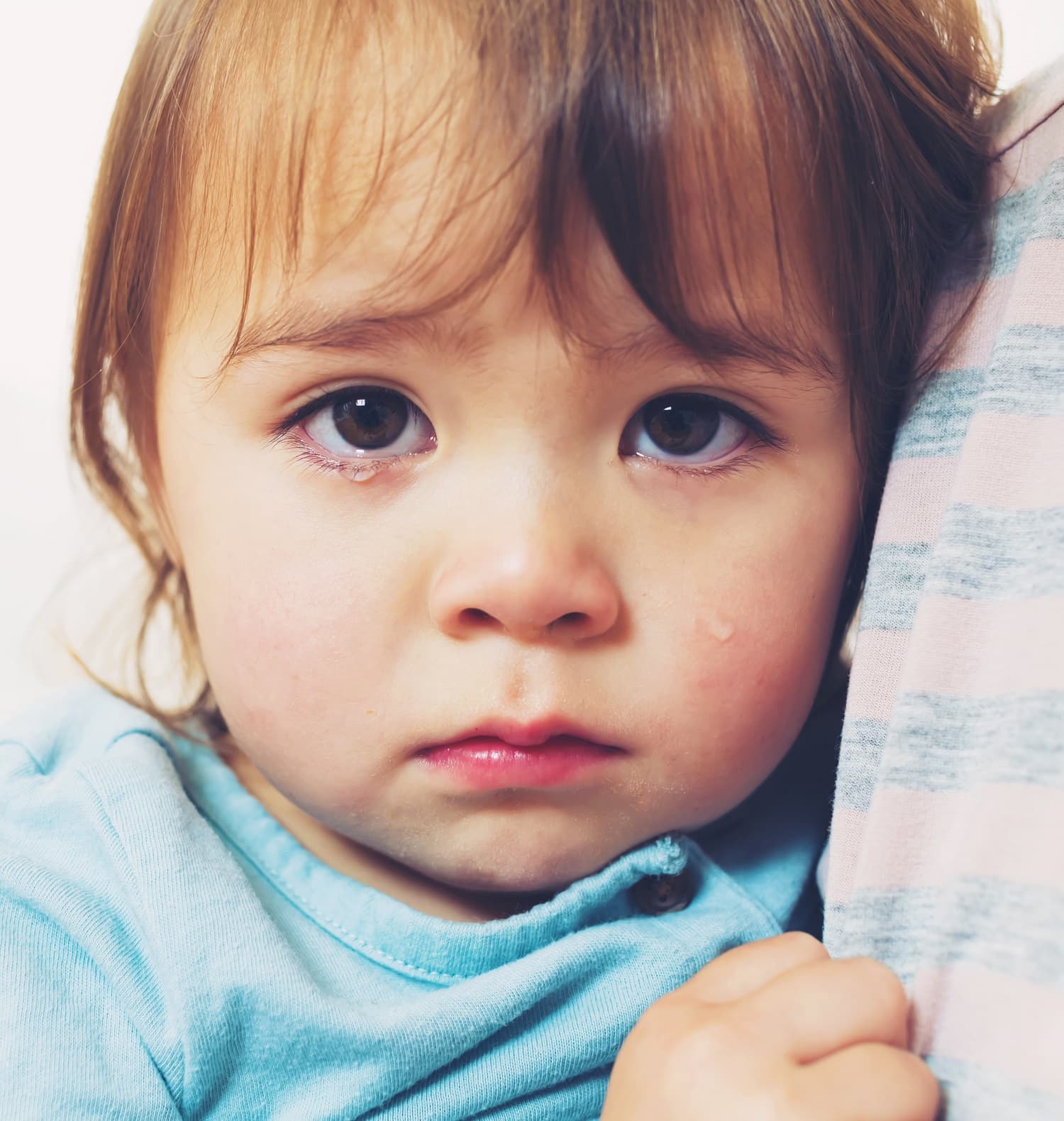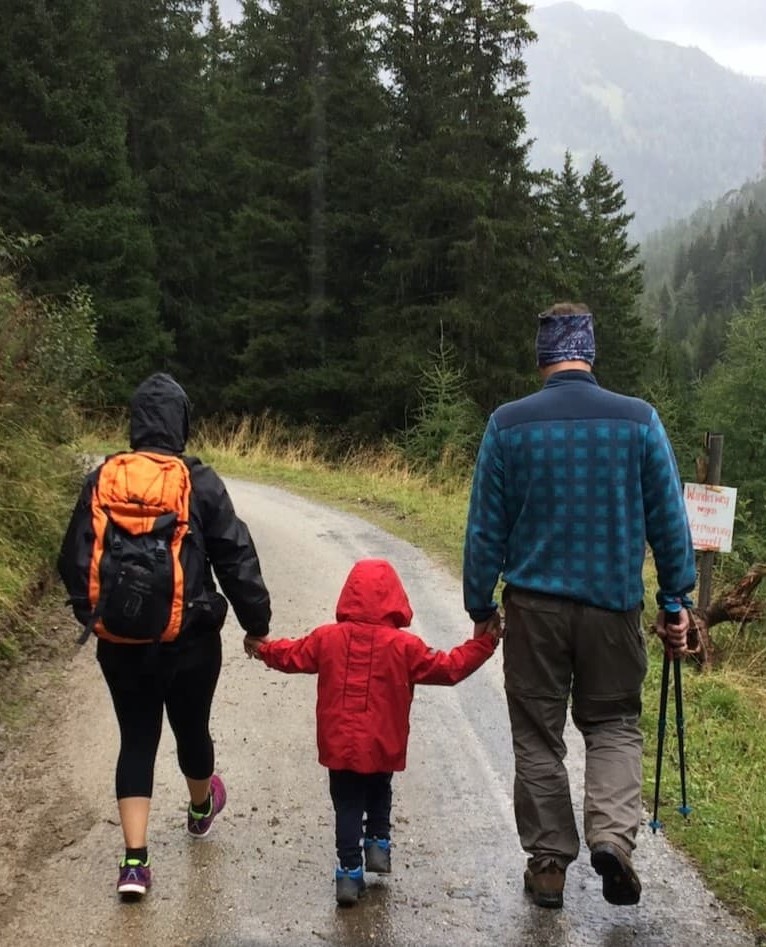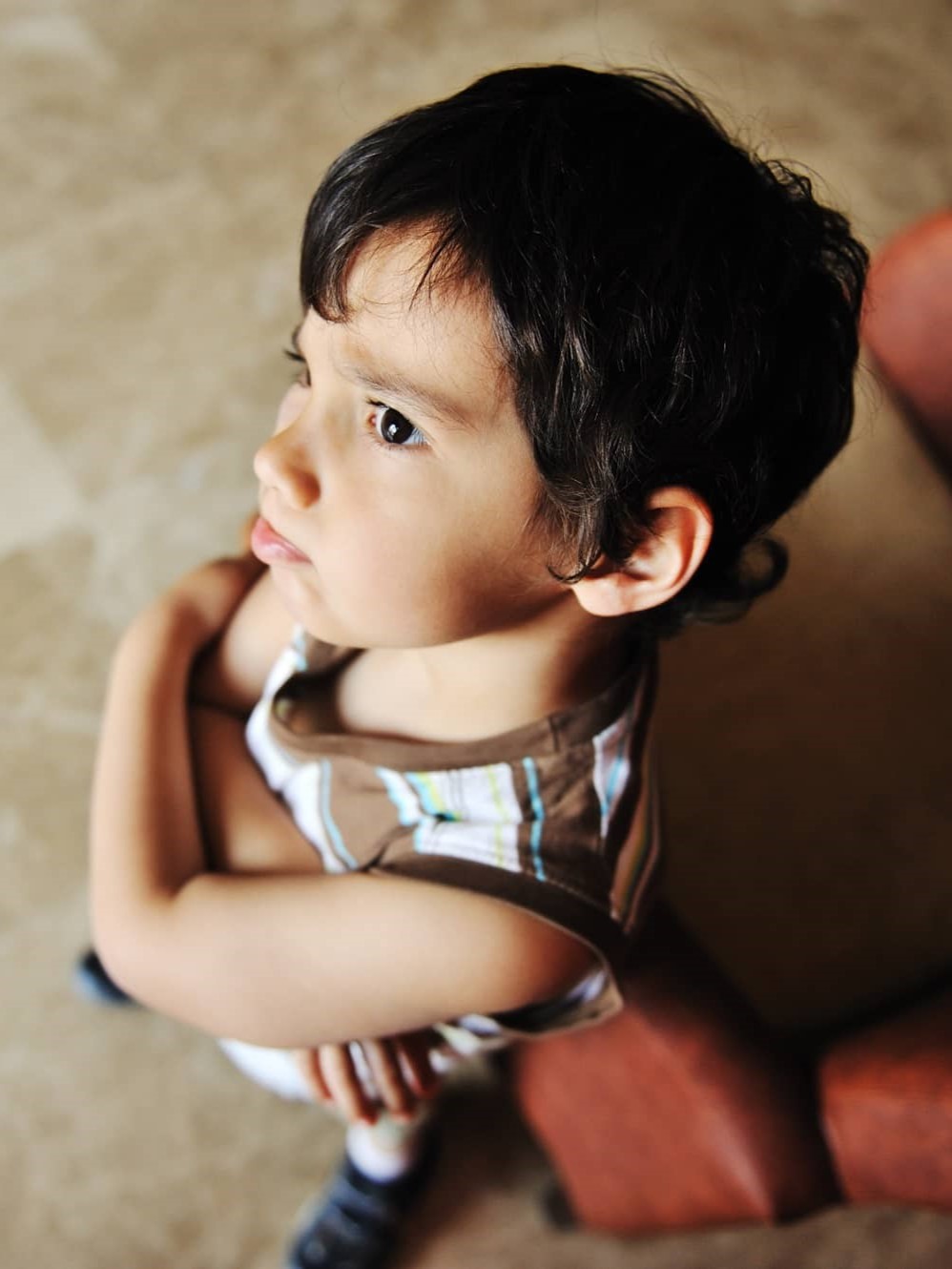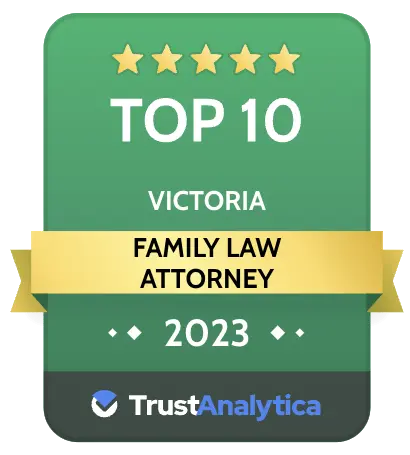Discover more. If your divorce is inevitable, choose the BETTER Path: join our newsletter for supportive, resolution-focused information!

Talking to Children About Divorce
- Home
- Divorcing with children
- Telling The kids
Explaining Getting a Separation or Divorce in B.C.
When talking to children about divorce your main concern will be how to break the news to them the right way, so you can help them cope with your divorce right from the first conversation.
As we are sure you are aware, getting divorced is not for the faint of heart, and even though it will likely be a good thing in the long run (because who wants to teach their kids to accept living in an unhappy marriage), talking to children about divorce for the first time, when breaking the news, is something that most parents and their kids remember. This entire process goes much more smoothly if some foundational steps are planned.
At Pathway Legal, people hire us because they want a better divorce than many of their friends, family members and acquaintances have gone through. Part of having that better divorce starts with the initial conversation with your kids.
Quick Links
Although your children are entitled to know what is happening with their changing family and this includes telling kids about divorce, it is also important to ensure that you do not consciously or unconsciously drag them into the middle of your dispute with the other parent.
Parental alienation is something that occurs when a parent either consciously or unconsciously tries to turn their kids against the other parent.
Don’t do it. It's child abuse.
Talking to children about divorce - minimise the effects of divorce on kids
Many parents need help knowing where to start when talking to children about divorce. There is a right way and a wrong way of telling kids about divorce. At Pathway Legal, we empower our clients to talk to their children about divorce the right way.
One way we do this at Pathway Legal is by encouraging our clients to watch this short and very well made video that shows how young brains develop. As parents the way you manage your separation or divorce will have an impact on them. The video was created by The Alberta Family Wellness Initiative (AFWI). AFWI is a network of Albertans coming together to improve health and wellness for everyone. We hope you value watching it.

Helping children cope with divorce starts from the first conversation
Without overcomplicating matters, in a nutshell, kids need to hear three things:
- Both of you love them. Reiterate this as much as possible.
- That the separation is not their fault.
- They will get to continue to see both of you (assuming that is the case, which almost always is. In my 27+ years of representing families, I have only had two cases where a parent did not get to have a continued relationship with their kids, and yes, it was for a very good reason).
The average marriage in Canada lasts around 14 years with 42% of couples divorcing. Having separated or divorced parents do not carry the same kind of stigma it used to.
For many parents, talking to children about divorce is one of their most painful moments of separation.
For many parents, talking to children about divorce is one of their most painful moments of separation.
At Pathway Legal, we always tell our clients that because it is so common, having divorced or separated parents does not have to be a big deal for kids. After a transition period, it can be relatively easy for kids to understand, adjust, and accept new and different circumstances. It only becomes a big deal when parents remain in conflict after the initial separation period. High-conflict custody cases hurt kids and should be avoided whenever possible.
Is divorce bad for children?

We often feel tremendous guilt when our marriage ends. That does not, however, mean that getting divorced is bad for your children. Staying together for the sake of your children is a terrible idea.
Now, hear us out. We want great marriages to continue. It would be wonderful if children were all raised by happy parents who treated each other with love and respect. So, why would your separation be good for your kids?
If you think about it, kids learn from their home environments. They will likely create a home environment similar to the home you have raised them in. If your marriage is toxic or desperately unhappy, what are you teaching your children about the kinds of lives they should live? If you end a relationship that is not working, you teach your kids that living in misery is unacceptable. You teach them that creating a better home environment is good and that people should not stay married at all costs, particularly if the cost is too great.
Talking to children about divorce can be good news for your kids
Make no mistake about it, if you and your spouse have been unhappy or dysfunctional, your children are likely aware of it. Kids are often way more emotionally intelligent than we give them credit for.
Returning to the point about children learning most from what we do instead of what we say, look at the example you are setting. Choosing a happy home life which may mean getting divorced, can demonstrate to your kids that living in a happy home is the goal.
A powerful way to think about this is to imagine that the life you have been living is what you wish for your children.
If you are living in an unhappy or unfulfilling marriage, is this the relationship you would wish for your children in the future? If there is constant fighting at home, an absentee parent, or a lonely caregiver, is this the life you want your children to have as adults? If not, then you have your answer.
As we said, children will normalize the life they experience at home, which is the future they will often feel most comfortable in. So if they grow up in a home of bickering or sadness, they will likely gravitate towards a relationship that will give them those same feelings when they are older.
As scary as change may feel in the moment and as painful as the transition may seem, to help you through this difficult season it is crucial to keep your eyes focused on the future and the life that lies ahead for you and your children. If you can picture a future where your children feel loved and secure with each parent and see both parents happy and living life in a fulfilling way to each of them, it will help you and your kids stay afloat during the change. Children thrive in a happy and healthy home, so make it your mission to get your family into a place where everyone can thrive, including you, your kids, (and even your ex-spouse).
Telling kids about divorce is more than one conversation
Your first conversation is really important, however, helping children cope with divorce will likely mean more than one conversation. Remember that children learn the most by watching what we do, not so much by hearing what we say. So while your approach and your first conversation is important, what is even more important is your actions and behaviours before and after the conversation.
This means that even if your words aren’t perfect and the first conversation doesn’t go exactly as planned, what is more important is how loved and secure your children feel in their relationship with you and their other parent. Still, as this conversation is one that your children will likely remember for the rest of their lives, you must explain it as clearly and age-appropriately as possible.
Tips for talking to kids about divorce - 12 must dos

When talking to kids about divorce remember these 12 tips:
- Plan ahead to have the conversation.
- Choose the right setting, where it is quiet and you will not be interrupted.
- If you and the spouse can agree about telling kids about divorce in a way that shows a united front, then that will help your kid. If you are planning on co-parenting after divorce, this will be a great way to start doing so.
- Assure them that you both love them.
- Assure them that they will get to see both of you.
- Assure them that the separation is not their fault.
- Validate their feelings, even if they have strong reactions.
- Assure them that you will (if possible depending on your situation) work cooperatively with the other parent to ensure their best interests are first and foremost.
- Tell them you are open to discussing it more when they are ready (often this is not just one conversation).
- Maintain their daily routine as much as possible.
- If your child is struggling, consider getting outside help, like a counsellor that they can speak to privately. Even if you are getting a divorce with young kids, a play therapist or art therapist can be a valuable resource for them.
- Reiterate that you love them.
When should you tell your child about divorce
If you have children in different age groups, you might not want to have the initial conversation as a whole family. If you have older children and then children who are quite young, it may make sense for you to have the conversation in confidence with the older children first so that they can ask their more complex questions that younger children may not understand and then involve the older children when telling the younger children.
Getting divorced - how to talk to preschoolers about divorce
Those formative years from 0 to 5 and 6 years old are profoundly important for kids. Ensuring you maintain an environment where they feel safe and loved is key. At one time it was thought that very young children are not as affected by divorce as older ones, but the research says differently. Young children may be unable to understand or communicate their feelings as clearly as older kids. Still, they are likely the most impacted by disruption to their routine and environment.
When speaking to children about divorce at this age, it is best to keep the conversation simple and concrete, centred around what changes may happen for the child and what will remain the same.
Of utmost importance to this age is the constant reassurance that they are loved, that it is not their fault, and that they will get to see both of their parents.
Reassure them that the safety and security that the child feels with each of you will not change, and they will still be just as loved and just as cared for. Following the conversation, a lot of physical and concrete reassurance will help the child feel more at ease with the new information. The reassurance will need to continue with each step of the transition for the child, with special attention paid to the child’s specific needs from moment to moment.
Because young kids are highly dependent on their parents, if they have questions, those questions will likely revolve around themselves. Be patient. Answer their questions honestly while being age-appropriate. And yes, reassure them again and again that they are loved.
Divorce with young kids - telling 6 to 11 year olds about divorce
Children between the ages of 6 and 11 typically begin to have a more developed sense of feelings and develop the ability to think beyond what affects only them. They are still not able to understand the more complex details surrounding decisions such as divorce, parenting-time schedules or decision-making. Still, they can generally express what they are feeling. They can even empathize with other people involved. Kids at this age may even wonder how does child support work, and the different types of child custody. It is important to answer their questions and ensure that they are not put in the middle of the conflict between you and the other parent.

Keeping parental alienation factors in mind, it is important that even if kids ask about child support or different types of child custody, that your answers do not unintentionally put your child in the middle of conflict between you and the other parent. Just recently, for example, we learned of a case where a father explained his child support obligations to his 7-year-old using poker chips. This was an example of parental alienation and was the exact wrong thing to do when talking to children about divorce. A 7 year old does not need to worry about child support.
Another factor in this age group is that their world has often been enlarged to include the school community and peers. Let your children’s teachers know of the changes in your home. If your child struggles through the transition, it will be helpful for their teachers and other caregivers to know the context.
Children at this age may or may not want to talk about their feelings, but they will more likely express their distress through fear, anxieties, or fantasies about you and the other parent reconciling. As with all ages, stability is key. They need to know they are loved, that it is not their fault, and they will continue to see both parents (assuming this is the case). Allow them to have their feelings, no matter how strong they are.
Talking to your teenagers about divorce: what to tell your teenager/young adult and up
As if being a teen is not hard enough. A lot is going on with children at this age… puberty and hormones are in full swing, as is the increased sense of independence and questioning of your parental authority. Children between the ages of 12 to 15 years old will also have a greater ability to understand factors surrounding divorce and will be able to participate in deeper conversations surrounding the topic. By this age, other relationships, such as relationships with their peers have become much more important and influential to the child.
Tweens and teenagers will likely want to discuss different types of child custody with you and will want a say regarding the parenting arrangements. They might want to know about divorce visitation rights right away and need to be reassured. Sometimes they will even ask about how does child support work. The important point is that they are not put in the middle of conflict between you and the other parent. So, while you are balancing the importance of the information they are asking, it is also important that you do not put them in the middle.
When talking to teens about divorce, it is important to keep the communication lines open beyond the initial conversation and to allow for more questions and reactions as information is processed. While it may be difficult to differentiate when a child is expressing typical teenage moodiness from irritability or anger that could be surfacing about the divorce, it is still important to maintain a sense of stability at home to help the child feel as secure as possible with all of the teenage issues they are also dealing with.
Like we said, if you have a child in this age group as well as younger children, if you have your discussion with your teen first and invite their involvement in telling the younger children the news, it will provide an opportunity to help your teen feel more included and connected to the family rather than otherwise being isolated while processing the news and keeping to themselves.
Once a child reaches the age of 16 or older, they have a much more developed sense of the world around them including the complexity of issues such as divorce. It is still important to realize, however, that when talking to children about divorce at this age, that the initial and subsequent conversations are no less important.
While they may still seem quite self-centred in their approach to life, their ability to think and reason will help them grasp new information and ask questions to help them process what is going through their minds.
Important Related Pages
In British Columbia, teens will be consulted by decision-makers regarding what kind of parenting arrangements they will want to see.
As family law lawyers, at Pathway Legal, our years of experience will assist parents gain a better understanding of the different types of child custody and parenting schedules that are available so that the conversations you have with your kids can go as smoothly as possible.
Though children of any age are affected by their parents divorcing, children of this age group are already beginning to prepare for life independently of their parents so they can more easily separate themselves from what their parents are experiencing.
When talking to an older teen or young adult about divorce, it is still important to leave room for ongoing discussion and questions and to be open to hearing their opinions which may be very different from yours and require a response from you. This is one of your most powerful strategies to help your children cope with divorce.
Just like the others, this age group needs the same reassurance. They need to know they are loved, that it is not their fault and that they will continue to see and be with both parents. Even if life moving forward is going to look quite different, their being reassured is key.
Helping children cope with divorce - a deeper dive
Helping children cope with divorce starts with those first conversations. You also might want to explore other resources, such as books, articles, counsellors, play therapists and art therapists to assist with helping your kids do okay.
Kids, regardless of their age, can benefit and fare better with life stressors when they are able to reach out, seek help, and get assistance from other supports that are in addition to you, their parent.
Books for kids about divorce
At Pathway Legal if we were to recommend one book, and one book only that will assist parents when talking to their children about divorce, it is hands down, How to Talk so Kids Will Listen & Listen so Kids Will Talk by Adele Faber and Elaine Mazlish. It is not even a book about divorce. It is, however, a book that will improve your communication with your kids. Whenever a friend has a baby, we don’t buy them a cute little outfit as a gift, we buy them this book. A cute little onesie will long be forgotten when a baby grows, but the wisdom in this book is a gift that keeps giving. If you can get your kids’ other parent to read or listen to that book as well, all the better.
This book focuses on communicating with your children, not just in divorce but in every circumstance imaginable.
This book has had a profoundly positive impact on my relationship with my daughter. The strategies in the book are straightforward, simple and easy for us to learn. They also help with all kinds of relationships, not just your kids.
Some people consider this book the ultimate parenting bible on how to effectively communicate with your child. If you are a reader, get it now and read it. If you are not a reader, get the audio version and listen to it. If more parents absorbed this book, countless children and their parents would have closer, more connected and better relationships. That is why we always recommend it at Pathway Legal.
This book will not only help you navigate your conversation regarding your separation and divorce. It will also help you build upon your relationship with your child. You will be more connected and prepared for future conversations regarding your divorce and other challenges your child will face as they grow up.
Because your child will have negative feelings, like frustration, anger, and disappointment, not only about your divorce or separation but about other things, this book will assist you in discovering how to cope with their feelings in a way that supports them. You can also express your sometimes very strong feelings as a parent without hurting your child. This book is a true gift, and we cannot recommend it enough. Because talking to your children about divorce is an important topic that our clients always ask us about, we researched and found some excellent age-by-age divorce books for kids.
Books for kids about divorce based on age
Although the below list is unlike How to Talk so Kids Will Listen & Listen so Kids Will Talk because we have not read them, you might find them helpful. If you do, please let us know. Or, if you know of another good book we can recommend, please tell us!
Children ages 3-5
- It’s Not Your Fault, Koko Bear
- Mama and Daddy Bear’s Divorce
- Two Homes
- My Family’s Changing: A First Look at Family Break-Up
Children ages 6-8
- I Don’t Want to Talk about it
- Two Adventures with Mom and Dad: Explaining Divorce to Young Children
- Hope’s Broken Snow Globe
- When My Parents Forgot How to be Friends
Children ages 9-11:
- A Smart Girl’s Guide to Her Parents’ Divorce: How to Land on Your Feet When Your World Turns Upside Down
- It’s Not the End of the World
Children 12 and up:
Children ages 3-5
- It’s Not Your Fault, Koko Bear
- Mama and Daddy Bear’s Divorce
- Two Homes
- My Family’s Changing: A First Look at Family Break-Up
Children ages 9-11:
Talking to children about divorce - what does legal separation mean for the family
Depending upon the age of your kids, they might be interested in the legal picture. This might include how does child support work, guardianship of a child, different types of child custody, and child custody schedules.
Essentially, a legal separation occurs when parents say their relationship is over. This might be too much information for your kids, but sometimes parents can be legally separated while remaining resided in the same home. In legal terms we call this “living separate and apart” but under the same roof. A lot of the time this happens when one parent moves into the spare bedroom, or moves into the basement until they get their own separate accommodation.
Summary of talking to children about divorce
Talking to children about divorce is age and stage-specific and you will give your kids as much or as little information as they require based upon their developmental stage and relationship with them.









